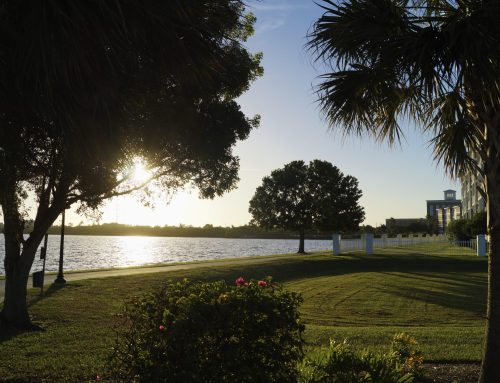Lethal Bronzing, previously called Texas Phoenix Palm Decline, is a relatively new bacterial disease (called a phytoplasma) that is causing significant palm losses in Palm Beach County, and throughout much of Florida. It is believed to have originated in the Yucatan Peninsula of Mexico and may have been carried to Florida in the salivary glands of a tough insect vector by Hurricane Wilma. The disease was first found in Florida in 2006 and initially followed the path Hurricane Wilma had taken the previous year. Symptoms are similar to lethal yellowing, but currently are known to affect a much smaller number of palm species. A few palm species are known to be susceptible to both diseases.
The colonized and then damaged vascular system (phloem tissue) of the palm leads to wilting, and eventually death. University of Florida/IFAS research is determining which sap feeding insect(s) may spread it. The one confirmed so far is Haplaxius crudus, a planthopper and palm sap feeding insect, also known as the American palm cixiid. It spends most of its life cycle in the soil and only emerges as an adult to mate and feed on palm fronds.
Palms currently known to be affected by lethal bronzing (as of May 2019) include Christmas Palm, Bismarck Palm, Pindo Palm, Carpentaria Palm, Coconut Palm, Chinese Fan Palm, Canary Island Date Palm, Edible Date Palm, Pygmy Date Palm, Wild Date Palm, Fiji Fan Palm, Buccaneer Palm, Mexican Palmetto, Cabbage Palm, Queen Palm, and Chinese Windmill Palm. Undoubtedly this list of susceptible palms will grow now that the disease has been detected in Miami-Dade County, where Florida’s richest diversity of palm species are found.
Learn about symptoms, effects and treatments.Tune in to our podcast to listen to world renown Dr. Brian Bahder Assistant Professor, Insect Vector Ecology from the University of Florida on to discuss Lethal Bronzing
Listen to “Cutters Edge show 11 part 1 – Lethal Bronzing w/ Dr. Brian Bahder” on Spreaker.
Listen to “Cutters Edge show 11 part 2 – Lethal Bronzing w/ Dr. Brian Bahder” on Spreaker.





